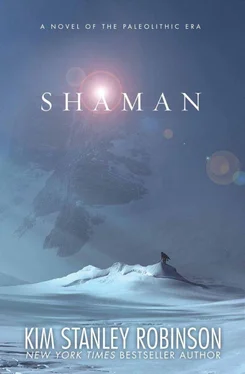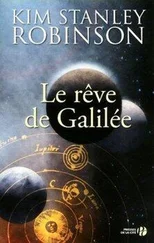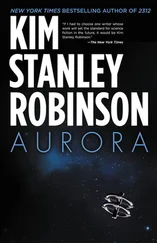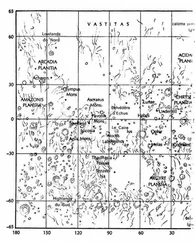Kim Robinson - Shaman
Здесь есть возможность читать онлайн «Kim Robinson - Shaman» весь текст электронной книги совершенно бесплатно (целиком полную версию без сокращений). В некоторых случаях можно слушать аудио, скачать через торрент в формате fb2 и присутствует краткое содержание. Город: New York, Год выпуска: 2013, ISBN: 2013, Издательство: Orbit, Жанр: Фантастика и фэнтези, Историческая проза, на английском языке. Описание произведения, (предисловие) а так же отзывы посетителей доступны на портале библиотеки ЛибКат.
- Название:Shaman
- Автор:
- Издательство:Orbit
- Жанр:
- Год:2013
- Город:New York
- ISBN:9780316235570
- Рейтинг книги:4 / 5. Голосов: 1
-
Избранное:Добавить в избранное
- Отзывы:
-
Ваша оценка:
- 80
- 1
- 2
- 3
- 4
- 5
Shaman: краткое содержание, описание и аннотация
Предлагаем к чтению аннотацию, описание, краткое содержание или предисловие (зависит от того, что написал сам автор книги «Shaman»). Если вы не нашли необходимую информацию о книге — напишите в комментариях, мы постараемся отыскать её.
From the New York Times bestselling author of the Mars trilogy and 2312 comes a powerful, thrilling and heart-breaking story of one young man's journey into adulthood -- and an awe-inspiring vision of how we lived thirty thousand years ago.
Shaman — читать онлайн бесплатно полную книгу (весь текст) целиком
Ниже представлен текст книги, разбитый по страницам. Система сохранения места последней прочитанной страницы, позволяет с удобством читать онлайн бесплатно книгу «Shaman», без необходимости каждый раз заново искать на чём Вы остановились. Поставьте закладку, и сможете в любой момент перейти на страницу, на которой закончили чтение.
Интервал:
Закладка:
The makers crouched and tiptoed about on the edges of their patches, stretching far out to smooth and shape the sand to what they thought some part of the world would look like from the sky, if shrunk to the size of their patch. The areas they portrayed were sometimes big, extending from the festival grounds and the caribou steppe to the mountains to the south, and the great salt sea to the west. Others portrayed smaller areas. There were distinct styles, which Loon thought were somewhat like the way wall paintings were either three-liners or fully detailed: some views were made simply of wet sand molded into the shapes of the land by hand and stick, so that one saw the stripped flesh of the land, so to speak; others used moss for meadows, twigs for trees, pebbles shoved into the sand to look like the gleam of water seen from on high, even some little toy animals and shelters and people, taken from kids’ camp games. Someone had even packed down snow to represent the ice caps on the central highlands, and in one old woman’s view, even the great ice wall of the north, here ankle high.
It was funny to see these little worlds as if one were an eagle at the highest point of its gyre, and some of the decorated views were quite beautiful. But what the makers mostly discussed was how accurate they were. Long sticks were used to point out features; traveling stories were related, with lots of argument about what a day’s walk meant in terms of a stretch of land. This last argument was impossible to resolve, both in principle and in relation to the shrinking they had done to reduce a big part of the earth to three strides on a side; but it obviously gave many of them immense pleasure to discuss it at length, with sand hills and canyons to point to:—I was in this valley you mark as shallow, but it’s deeper than that, I passed through it twelfth month and the sun never came over the southern ridge, so you need to have it deeper.—Maybe so, here I’ll scoop it down a bit.
And so on. At the end of the session they would all declare their favorites, and a best of day would be declared, and the winner given a bucket of mash and a chance to brag for a fist or two, and then they would all stand around the edges of the view, observers and makers both, and leap out onto the little worlds and tromple them to a chaos of torn sand, worse than the mud at a caribou ford. Gods destroying worlds: and while it lasted it was the best dance of all, they shouted and laughed as they leaped and kicked, it felt glorious.
Still, Loon only really began to relax when the festival was over and they had dragged their dried meat and new goods back home to their abri over Loop Valley.
Chapter 58
In autumn we eat till the birds go away,
And dance in the light of the moon.
Loon began to feel like his life was real. Ever since his wander, it had not felt real; it had felt as if in some instant of the wandering days he had wandered into a different world and never come back out. Wandered into a dream and not woken up. That happened to people; some of Thorn’s stories told of it happening, and Loon fully believed it, because it had happened to him before, as a child, when his mother died. And then again during his wander.
And now, yet again. He had walked into a different dream, stepped through the place where all the worlds meet, into the next world over. In this one the clench slowly left his belly, and he could laugh without a catch in his throat. Elga sat there by the fire, big among the other women, fattening up on the autumn’s bounty, growing big around the new child inside her, soon to be born; still not much of a talker, and eyes hard as pebbles, always watching; but always there, too, listening to the other women and nodding patiently, asking questions that kept them going. The questions made her sound skeptical, but Loon noticed that her eyes would be on Lucky, or the skyline, as she talked with the other women, and with a simple—But why? she could have the other woman talking for most of the next fist, while Elga continued to eye something else beyond their talk. She could do several things at once. She was harder than before, no doubt about it. But she still had a warm spot for Loon, he could see that in the way she looked at him, feel it in her hands and the way she kissed him at night. She seemed to give him the thanks for her rescue, although Loon didn’t think he deserved it, as he had had to be rescued himself; and in the end it was Elga who had hauled him home.
But it was true that Elga was thankful to Thorn too, as she made clear often, bringing the old sorcerer things by the fire, or down by the river, or at his bed: ladles of soup, needles, birdskins, buckets of water, morsels from the kill. Loon did the same when it occurred to him, and he saw how much Thorn liked Elga’s thanks, much more than Loon’s, which he accepted as only what was due. Loon ignored that, which seemed proper to him anyway. Thorn had come and rescued them, and now Loon was going to be the pack’s next shaman, it looked like, so he needed Thorn to teach him things. It was exactly the reverse of how he had felt after his wander, which again made him feel like he had fallen into a different world. As for Thorn with Elga, no doubt it felt good to Thorn when she was nice to him, considering the treatment he always got from Heather, her constant needling. Very different to have a woman be sweet and kind, and a young strong woman at that, fat with child.
Also: Elga never thought about what had happened to Click. She did not see Click’s ghost, or if she saw it, pretended to perfection that she didn’t. She refused even to see how the haunting had affected Thorn, or Loon too for that matter. She never mentioned the past at all. Thorn liked that in her.
Because for Thorn the past was still alive. Loon could see it. There was a dream world Thorn could stumble into, even while fully awake. Although it was true that since they had buried Click’s bones in the lake, Click’s spirit had stopped hanging around at the edges of the firelight. He was not inside Badleg either, as Loon could tell because he walked around painlessly, and without the sound of humming bees from inside him. The lack of pain there remained new enough to Loon that he remembered to know it was a miracle. It seemed to him a clear sign that the burial had been good, and Click’s spirit content. And it looked like Thorn was seeing signs of this too, although he was still wary at the end of most nights; he kept his gaze on the fire itself, and did not look sideways or out into the night. And so there were no more moments when his fireside face would turn to a wooden mask as he looked out at the flickering trees at the edge of the light.
But then one day Hawk brought back an antler fragment he found in Quick Pass, and gave it to Loon while Thorn was there. The moment he saw it Loon snatched it up and tried to keep Thorn from seeing it; unfortunately the snatching motion drew Thorn’s eye, and before Loon had it hidden in his fist Thorn too had seen: it looked just like Click’s body after they had eaten the legs, the same truncated thighs at one end and long head at the other, all rough but obvious. And Thorn recognized it. His mouth tightened hard at the corners. Click’s spirit had said hello to him.
Loon took the antler fragment away, and refused to see the little incisions that one could have made to clarify the neck and crotch, which would have made it a toy in just the shape of Click’s body. Instead he cut away with his burin until the fragment was splittable, and then split it and turned the lengths into needles for Elga and Heather and Sage. So much for that.
Although it could also be said that now Click’s spirit was always there among them, and getting all sewn up in the seams of their clothes, and occasionally even sticking them in the thumbs. Loon realized he should have just lost the fragment in the forest, or cast it with the appropriate song into the pond with Click’s bones. He still didn’t have enough practice dealing with ghosts to understand how subtle they could be.
Читать дальшеИнтервал:
Закладка:
Похожие книги на «Shaman»
Представляем Вашему вниманию похожие книги на «Shaman» списком для выбора. Мы отобрали схожую по названию и смыслу литературу в надежде предоставить читателям больше вариантов отыскать новые, интересные, ещё непрочитанные произведения.
Обсуждение, отзывы о книге «Shaman» и просто собственные мнения читателей. Оставьте ваши комментарии, напишите, что Вы думаете о произведении, его смысле или главных героях. Укажите что конкретно понравилось, а что нет, и почему Вы так считаете.











